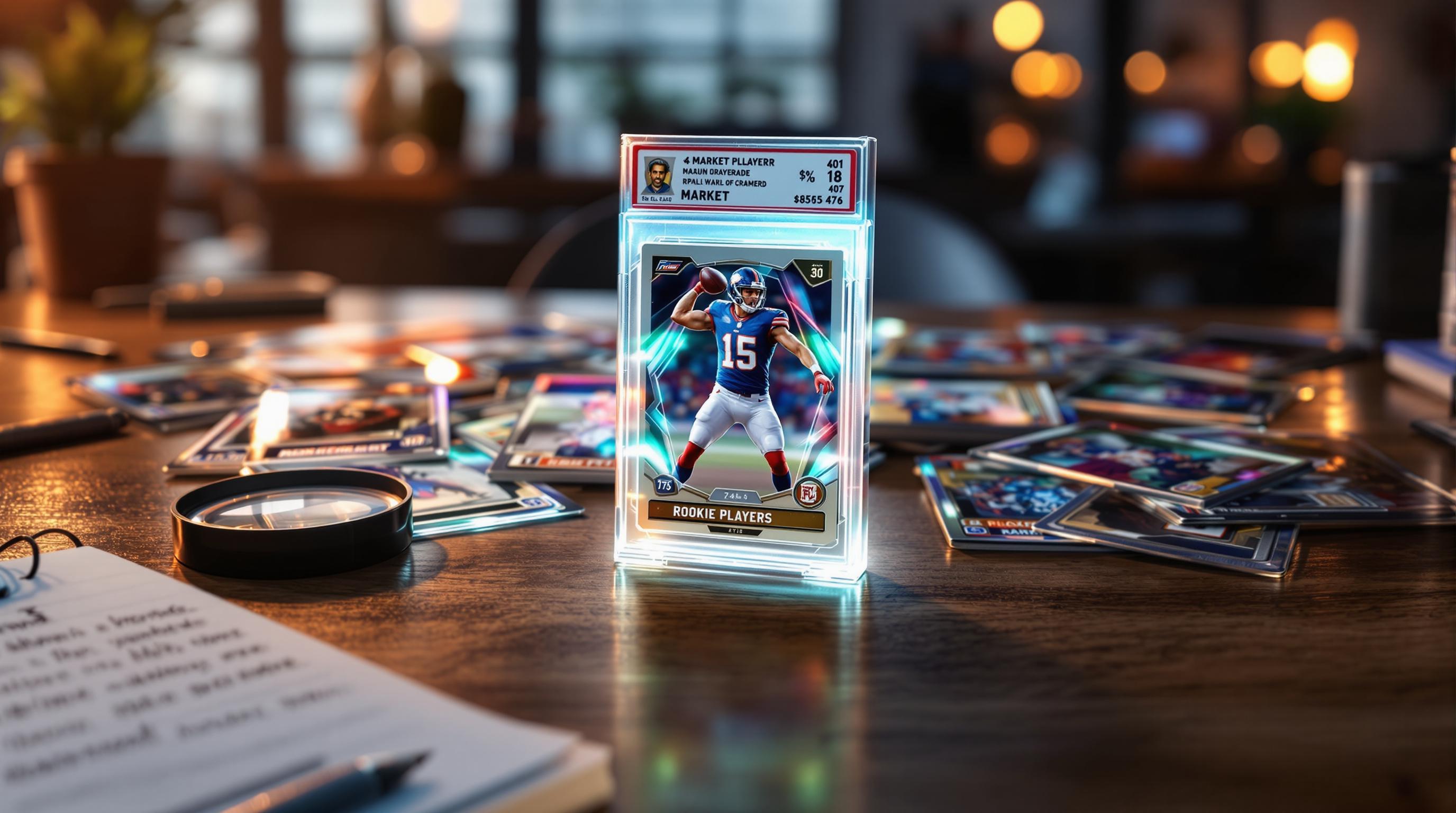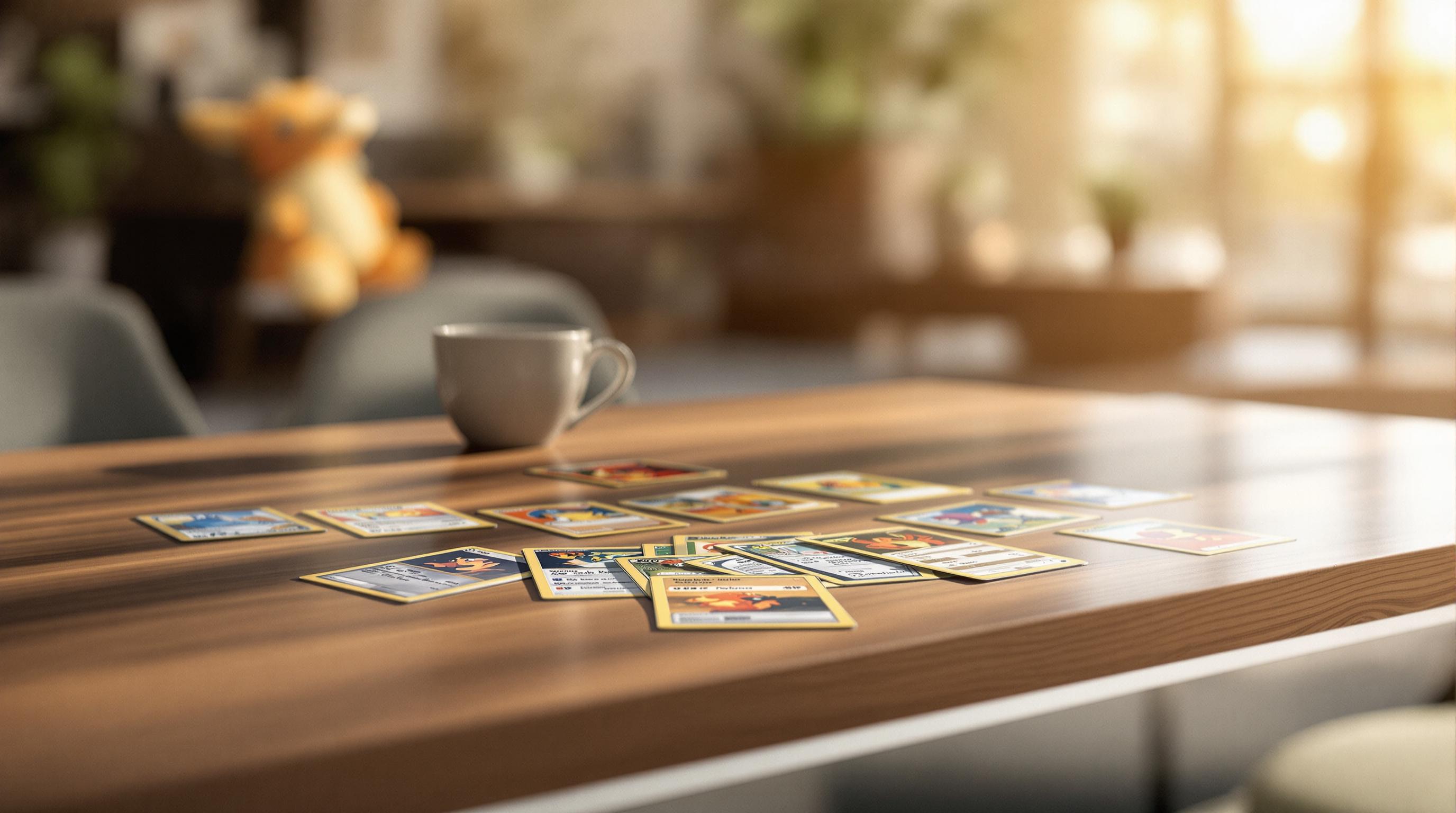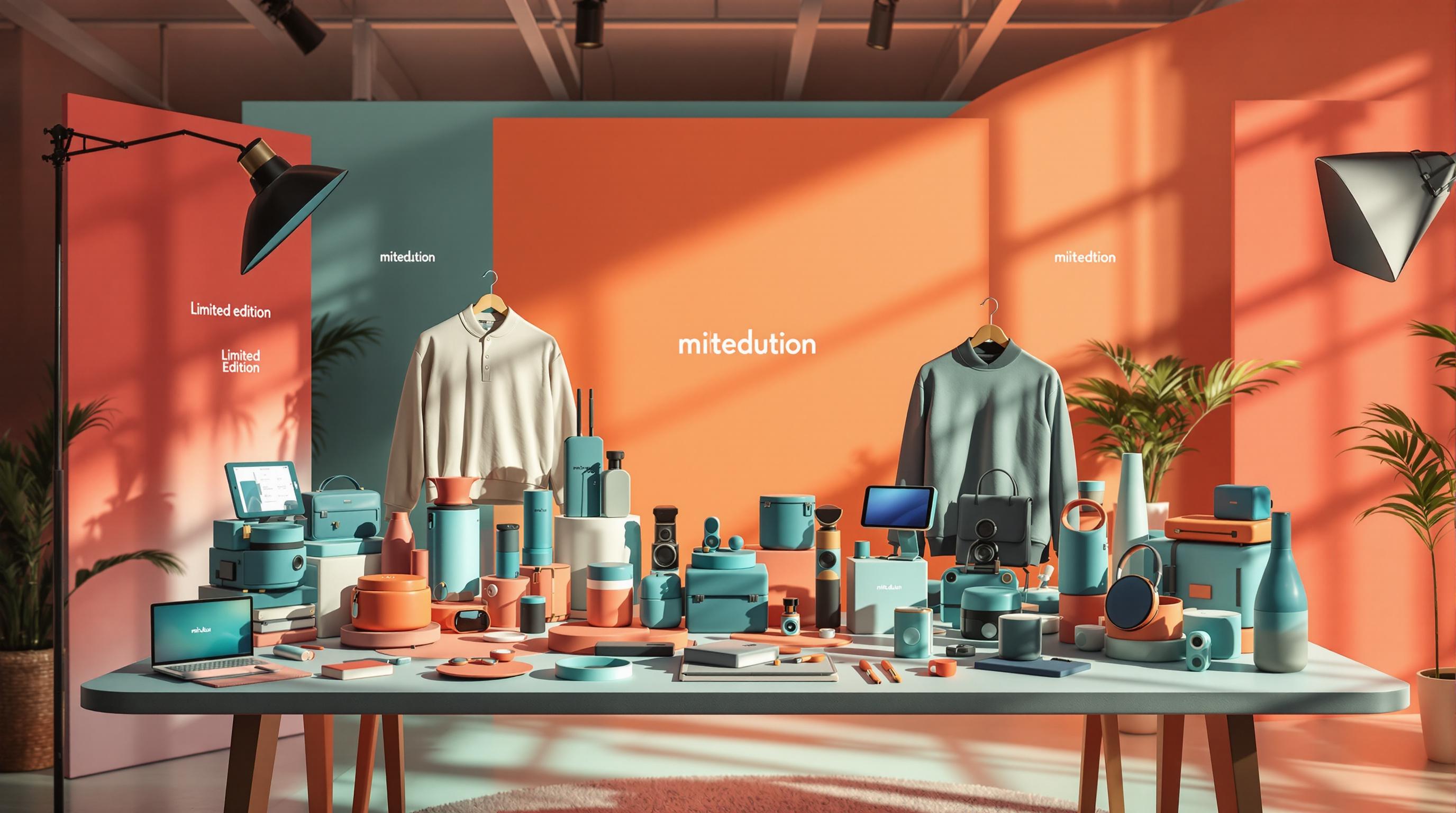Want to trade Magic cards like a pro at your local game store? Here's what you need to know:
- Check card prices using apps like TCGplayer
- Organize your trade binder for easy viewing
- Communicate clearly about what you want and card conditions
- Get to know your local stores and their communities
- Make fair trades that benefit both parties
Key things to remember:
- Use price guides to ensure fair trades
- Be honest about card conditions
- It's okay to say no to trades you're not comfortable with
- Building relationships at your LGS can lead to better trading opportunities
Related video from YouTube
1. Check Card Prices
Knowing card values is key when trading Magic cards at your local game store. Here's how to stay informed:
Mobile Apps: Your Pocket Price Guide
The TCGplayer App is a game-changer for Magic players. It lets you:
- Scan cards quickly (even in sleeves or binders)
- See TCGplayer Mid, Low, Direct Low, and Market Price
- Check Trade-In High prices for selling
Imagine you're thinking about trading your "Jace, the Mind Sculptor." A quick scan tells you if the price matches what you expect.
Online Tools: Dive Deeper
For more detailed info, try websites like MTGPrice.com. They offer:
- Up-to-date prices for Magic cards
- Market trend spotting
- Price summaries for different formats
Regular checks help you understand card values across formats and editions.
Not All Prices Are Equal
TCGplayer shows different price points:
- Market Price: Based on actual sales
- Median Price: Middle point of current listings
- Low Price: Lowest current listing
For person-to-person trades, many players use TCGLow as a starting point. One trader said:
"If someone is expecting to get TCGMid prices selling Peer to Peer, they're off their rocker."
A good target? Aim for 70-75% of TCGMid in casual trades.
Don't Forget Condition
Price listings usually assume near-mint condition. Always factor in your card's actual state. A beat-up "Black Lotus" won't fetch the same price as a mint one.
2. Set Up Your Trade Binder
A well-organized trade binder is key for successful Magic card trading at your local game store. It protects your cards and shows them off to potential trading partners.
Pick a Good Binder
Get a quality binder that keeps your cards safe and easy to view. Many players like the Ultimate Guard ZipFolio. It's water-resistant, has side-loading pockets, and fits double-sleeved cards.
On a budget? Try the Ultra Pro Eclipse 9-Pocket binder. It holds up to 360 cards - perfect for growing collections.
Keep Cards Safe
Always use card sleeves. Double-sleeving is even better, especially for pricey cards. Why? Because card condition MATTERS for trade value.
Get Organized
Arrange your binder in a way that makes sense. Here's a common method:
- Sort by color: Lands, Artifacts/Colorless, Multi-Color, Blue, White, Red, Green, Black
- Within each color, sort by rarity or card type
- Put recent set cards at the front
Jonathan Medina, a Magic trading pro, says:
"Your trade binder is your shop front, a window in which you display your Magic wares."
Show Off Your Best
Spread your valuable cards throughout the binder. It makes people want to look through everything. Some traders put their best cards at the start of each section.
Keep It Fresh
Update your binder often. Take out cards you don't want to trade anymore. Add new ones you've gotten. Maybe use plastic tabs to mark your newest cards.
Multiple Binder Strategy
Got a big collection? Try using different binders for:
- Standard-legal cards
- Older, pricier cards
- Budget cards ($1-$10 range)
This helps you trade with different types of players and keeps your valuable cards safer.
3. Be Clear When Trading
Trading Magic cards at your local game store? Clear communication is your best friend. Here's how to make your trades smooth and fair:
Tell 'em What You Want
Before you start, say exactly what you're after. Don't just say "I want good stuff." Be specific. It saves time and helps everyone focus on cards that matter to you.
Be Honest About Your Cards
If your card's seen better days, say so. And take a good look at what you're getting too. Honesty keeps things friendly and avoids arguments later.
Use Price Guides
When talking value, use a price guide you both agree on. Most folks go with TCGplayer's market price. You might say, "TCGplayer has this Jace at $80. What do you think is fair?"
It's OK to Say No
Not in a trading mood? That's fine. A simple "Not trading today, thanks" works. If someone's pushy, remember what Mizz Mizzet, a Magic etiquette pro, says:
"Honesty is the best policy for a polite but firm boundary. You NEVER owe a community your discomfort."
Keep It Fair
Aim for even trades. Don't fall for "mythic for mythic" if the values don't match up. Stick to prices to keep things fair.
Be Clear About What's on the Table
When you make an offer, be crystal clear about which cards you're trading. As one player puts it, "You must trade what you agreed to." This keeps everyone happy with the deal.
sbb-itb-0db97a5
4. Get to Know Your Local Stores
Building relationships with your local game stores (LGS) is key for successful Magic card trading. These stores aren't just card shops - they're community hubs where you can connect with other players, learn about local trends, and maybe even snag better deals.
Here's how to make the most of your LGS:
Show Up Often
Visit your local stores regularly. The more you're there, the more familiar you'll become to staff and other players. This can lead to more trading opportunities and insider info on events or new stock.
Join the Action
Most LGS host tournaments, draft nights, and other Magic events. These are perfect for meeting people and showing off your collection. As one player puts it:
"One shop I frequented didn't do much on actual Friday Night Magic, but we had a big Commander love, so that got people coming in for that."
By joining in, you'll improve your game and expand your trading network.
Know Your Market
Each LGS has its own unique vibe and trends. Pay attention to what cards are hot at your local stores. This info can help you make smarter trades and boost your collection's value.
Give Back
Many LGS rely on Magic: The Gathering sales to keep the lights on. Buying from them isn't just about getting cards - it's about supporting the community. This support often leads to better relationships and trading conditions.
Branch Out
Don't stick to just one store. Different LGS cater to different crowds and play styles. For example, one community member shares:
"We have an awesome FLGS near us in Lynnwood, WA called Around the Table. They do have lots of tournaments but they also host local game groups and they sell food- snacks, ice cream, mead, beer, hard cider and wine."
By checking out various stores, you'll grow your trading network and get a better feel for the local Magic scene.
Be Trustworthy
Trust is everything in trading. Be honest, keep your word, and treat others with respect. As you build a solid reputation, more people will want to trade with you, often on better terms.
By diving into your local Magic community, you'll boost your trading game and help keep the local scene thriving. As one player sums it up:
"When you find a good gaming store that does all of this... then the loyalty just springs from that."
5. Make Fair Trades
Trading Magic cards isn't just about getting the best deal. It's about building a strong community and long-lasting relationships. Fair trades are key to a healthy trading scene at your local game store (LGS).
In a good trade, both sides should walk away happy. This means looking beyond just the card's price. Think about how playable it is and what it means to each trader.
Know Your Stuff
Before you trade, check out current card prices. Use sites like TCGplayer or MTGPrice.com to get the real scoop. And don't forget - a beat-up card isn't worth as much as a mint one.
Think Big Picture
Sometimes, a card's worth more than its price tag. Maybe a player really needs that one last card for their deck. They might value it higher than the market does.
James Tann, a big name in Magic trading, says:
"When trading, don't ever be scared to look up the value of cards on the spot. This is a common practice and there are lots of internet enabled devices all around you."
Keep It Real
Honesty is a must in fair trading. See a big price difference? Speak up. It'll help you build trust in your local Magic scene.
Talk It Out
If a deal doesn't feel right, it's okay to make a counter-offer or walk away. Many LGS owners are up for a chat. One trader shared their experience:
"My LGS has a cool system. They give you a percentage of their sell price, based on how many they have in stock. I traded in a Wasteland a while back. They list them at 60, but they only had one in stock, so I got 70% of their price - that's 42."
Build Connections
Getting to know your LGS owner can lead to better trades. Figure out how they price things and offer cards they need. This give-and-take can lead to sweeter deals down the road.
Trading Rules: Do's and Don'ts
Trading Magic cards at your local game store (LGS) can be fun, but it's important to follow some basic rules. Here's a quick guide to make your trading experience smooth and enjoyable:
Be Honest and Fair
Always be upfront about your cards' condition. Don't try to hide flaws or exaggerate values. Use price guides to ensure fair trades. As James Tann, a Magic trading expert, says:
"When trading, don't ever be scared to look up the value of cards on the spot. This is a common practice and there are lots of internet enabled devices all around you."
Know the Rules
Every LGS has its own trading policies. Some are cool with it, while others have strict rules. For example:
"Trading is allowed, but selling is only allowed if you ask the owner for permission first."
Always check with the store owner before you start swapping cards.
Look Out for New Players
If you've been around the block, consider helping newbies navigate trading. Some stores even keep an eye out for this:
"I will also try and watch out for people trading with new players to make sure they aren't getting ripped off."
Keep It Fun
Trading should be enjoyable, not stressful. The People's Card Shop puts it well:
"Trading cards is a big part of TCGs. Ensure fair and respectful trades by being honest about card conditions."
Here's a quick rundown of trading do's and don'ts:
| Do | Don't |
|---|---|
| Be honest about card conditions | Pressure others into trades |
| Use price guides | Lie about card prices |
| Respect when someone says no | Trade with kids without supervision |
| Keep your trade binder tidy | Be aggressive or a bully |
| Check store rules first | Make unfair trades |
Conclusion
Trading Magic cards at your local game store (LGS) can be fun and rewarding if you do it right. Let's recap the five tips we've covered to help you trade with confidence and fairness.
First, know your card values. Always check prices before trading. Use sites like TCGplayer or MTGPrice.com. This helps you avoid bad deals and builds trust in your local Magic community.
Next, organize your trade binder. Think of it as your store window. A neat binder protects your cards and makes it easy for others to find what they want. Consider using a good quality binder like the Ultimate Guard ZipFolio or Ultra Pro Eclipse 9-Pocket.
Communication is key. Be honest about card conditions, agree on price guides, and don't hesitate to say no to a trade that feels off. James Tann, a Magic trading expert, says:
"When trading, don't ever be scared to look up the value of cards on the spot. This is a common practice and there are lots of internet enabled devices all around you."
Get to know your local game stores. Join events, chat with the staff, and learn each store's trends. This can lead to better trades and helps build a strong local Magic community.
Lastly, aim for fair trades. The Tolarian Community College puts it well:
"Never taking advantage of your trade partner, even a little, is the #1 directive."
This approach keeps trading positive for everyone.
By using these tips, you'll improve your collection and help create a healthy trading scene at your LGS. Remember, trading isn't just about swapping cards - it's about making connections, learning more about the game, and enjoying Magic's social side.
Keep in mind that you'll get better with practice. Each trade helps you learn and grow. Stay curious, be respectful, and have fun. As John Sweeney says:
"Like many things in a collectible card game, trading is supposed to be a fun, social, and enhancing experience for the game."
So grab your binder, head to your LGS, and start trading with confidence. Who knows what great cards or cool experiences you'll find!
FAQs
What's the best way to trade Magic cards?
Trading Magic cards can be done in-person or online. Here's what you need to know:
In-person trading happens at local game stores (LGS) or anywhere players meet. It's great for checking cards up close and making quick trades.
"Any place where two or more players meet can be a place to trade Magic cards."
Online trading platforms like cardsphere.com let you trade with players from all over. Just remember to use hard card sleeves when shipping.
No matter how you trade, be fair and honest. Use price guides like TCGplayer to make sure trades are even. James Tann, a Magic trading pro, says:
"When trading, don't ever be scared to look up the value of cards on the spot. This is a common practice and there are lots of internet enabled devices all around you."
It's okay to say no to trades. If you're not in the mood, just say, "Thanks, but I'm not trading today." Mizz Mizzet, an etiquette expert, puts it this way:
"Honesty is the best policy for a polite but firm boundary. You NEVER owe a community your discomfort."


